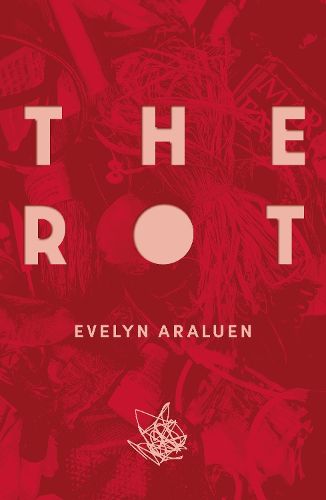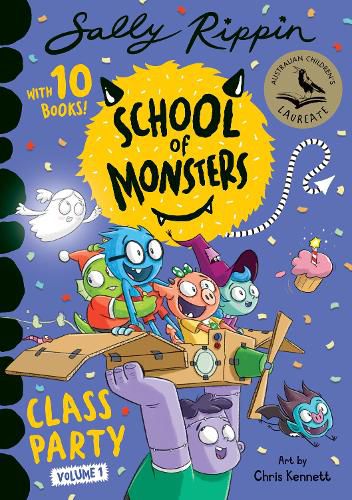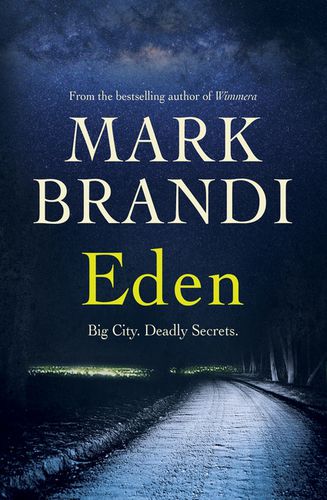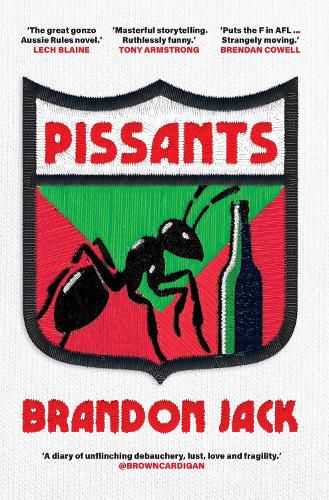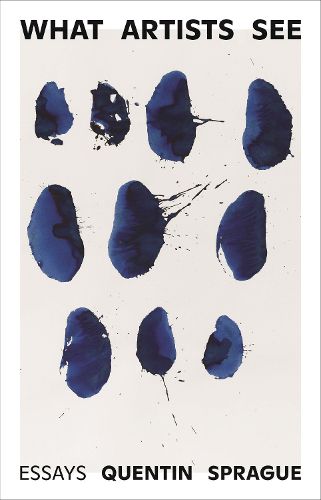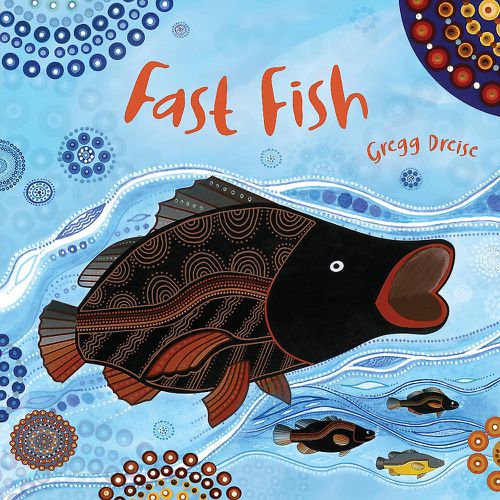The start of a new month means that there's a new issue of Readings Monthly available online and in our shops. Below you can read Alison Huber's column from the latest issue – and keep an eye on the blog for more updates and recommended new releases throughout the month!
I’ve just returned from the annual gathering of Australia’s independent booksellers, the BookPeople (formerly known as the Australian Booksellers Association) conference, this time held in the balmy climes of Brisbane. As it is every year, the conference schedule was packed with industry panels and author presentations (including but not limited to ones from Evelyn Araluen, Trent Dalton, Sofie Laguna, Heather Rose and Zoe Terakes), a huge trade show, an awards ceremony and gala dinner (at which our former colleague and outgoing CEO of BookPeople Robbie Egan received a Life Membership to the organisation in recognition of his contribution to the industry), and lots of networking between fellow booksellers and our comrades in publishing. In short, there was a lot of listening and talking, not much sleeping, and almost no reading (which I always find weird, given what we are there to honour). And now that I’m back on home turf, the thinking takes over for me, as I process all these encounters, discussions, and debates, and reflect on how they relate to what we are doing here at Readings, and my own work practice.
It’s often noted at these gatherings that for an industry that is in a state of almost permanent crisis (The book is dead! E-books are taking over! Online retailers will kill the bookshop! Deep discounting is devaluing our businesses!), independent booksellers and their shops remain remarkably resilient, staring down each new challenge as it arrives: one view is that if there’s one constant in life it’s change, and change can be good and energising, especially when it’s motivated by existential threats. Another view is that independent booksellers are a collectively stubborn bunch with a clarity of mission that keeps them keeping on in spite of it all.
A takeaway from this conference that is hard to ignore at this time, though, relates to the reading habits and literacy of Australia’s children, who are of course the future’s book buyers and book readers. Sally Rippin (who you might know for her Billie B. Brown and Hey Jack! book series, as well as Polly and Buster and the School of Monsters, among others) is the 2024–2025 Australian Children’s Laureate. Sally gave a wonderful opening address to the gathering, armed with disappointing statistics about decreasing rates of engagement with books and reading in young people, with falling literacy rates which show that around one third will leave school without adequate reading skills, a fact that will impact more than just their engagement with books.
Sally’s response as a writer has been to think about ways that her books can engage young readers at different levels, including neurodivergent as well as neurotypical readers, and meet children where they are with fun and appealing stories that are interesting and exciting, stories with which kids can really feel the progress that they achieve as they move through the books and develop their reading skills: if reading is enjoyable, the kids will read more and for pleasure. Hearing about the steps involved in her own writing process, and the thinking that resulted in these hugely successful and popular book series was really inspiring to me, because her approach is both creative and pragmatic, and I think that methodology is one that really appeals to me as a way of solving problems of all kinds.
Another focus of discussion at the conference was emblematised in the panel, ‘Indies supporting Indies’, in which Ultimo publisher Robert Watkins hosted a discussion about how independent booksellers can support independent Australian publishers and vice versa. Regular readers might remember my first Readings Monthly column of this year, in which I suggested that every book purchase and reading decision has the potential to shore up an Australian publishing ecosystem that includes a healthy independent sector. There are many practical daily decisions that, when we all make them together, can work at a scale to support an independent sector in the face of increasing consolidation and multinational ownership.
As I’ve thought about it more, and continue to workshop this issue in my head, I’m not sure how much knowledge there is in the wider community about the finer points of publisher ownership and imprint histories, and I think even amongst the bookselling community, the ownership of publishing companies is not always at front of mind. However, I do think there might be an appetite in our communities for more information, and that booksellers might be able to help tell publishing houses’ stories; literary provenance can become part of the conversation. Celebrating and supporting independence is really important. At the same time, the idea that one might be discouraged from buying a great book or miss an incredible reading experience because it’s published by a multinational company seems a fraught outcome of a discussion that might head in that direction without some care. Consumption is a many and varied set of cultural practices; moral consumption is not an easy path or a straightforward one. What booksellers can do at our end, though, is highlight the incredible work of our independent publishers and acknowledge the outstanding work of our local authors (whoever their publisher is) to make sure local content remains prominent on our shelves, and doing both of those things is what we’ve always done at Readings.
I fear this thought spiral I’ve been sent on might be making this conference sound terribly dry, but I promise you it wasn’t, and I’ve barely touched the sides of the things that were covered across the weekend. It was another extremely (re)invigorating experience to share time with colleagues and reset for the second half of the year, and get excited about the huge books coming our way.
Meanwhile, in spite of spending a lot of time considering the future books of 2025 and the future of books in general over the last 72 hours, I must stand still, breathe deeply, and remember that it’s actually July, and that a really great round of new releases is here for you already. One of them is Eden by Mark Brandi, our Fiction Book of the Month. We’ve been following Mark’s career keenly since his debut novel, Wimmera (2017). Our reviewer (another of our favourite Marks) thinks this is his best work since that book, and I have to agree. Also out this month is a debut that took me by surprise, Pissants by Brandon Jack, as well as lots of other books our booksellers recommend, including second novels by two alumni of The Readings Prize, previously shortlisted authors Amy Taylor and Moreno Giovannoni. Our Crime Book of the Month is a debut thriller which our reviewer calls ‘astonishing’, The Peak by Sam Guthrie. Our Nonfiction Book of the Month is a standout work of essays, What Artists See, by award-winning writer Quentin Sprague. We also have one of our famous 3 for 2 offers available for the month of July in our shops on a range of translated works of fiction. The range on offer is not an exhaustive or even representative selection by any means, but rather a great starting place or library-building exercise if you’d like to join the growing interest in the creative work of talented writers who write in languages other than English, and the creative work of talented translators who give English speakers access to these works.
And finally, dear Reader, my colleagues in the Children’s team have organised an offer on titles from Magabala Books. To my earlier point, Magabala is one of Australia’s publishers whose story I know you’ll be interested in. Based in Broome, this industry-leading Indigenous publishing house is Aboriginal owned and led. At this year’s ABIA (Australian Book Industry Awards) night, Magabala’s publisher, Rachel Bin Salleh OAM, was acknowledged with the Pixie O’Harris Award for her work in and impact on the world of children’s publishing. In announcing the award, the Australian Publishers Association said, ‘Rachel has quietly changed the Australian publishing landscape. From Broome in WA, she has encouraged the Australian publishing industry to deepen our understanding of Aboriginal and Torres Strait Islander culture, while also being incredibly generous in sharing her knowledge of publishing First Nations stories’. To highlight this work, and in time for NAIDOC Week (6 to 13 July), we’re offering 20% off a range of kids titles this month in shops and online, so now is the perfect time to familiarise yourself with and support Magabala’s work. If you’d like to find out more about the publishing house and its history, there’s lots more to explore on their website: magabala.com.au


